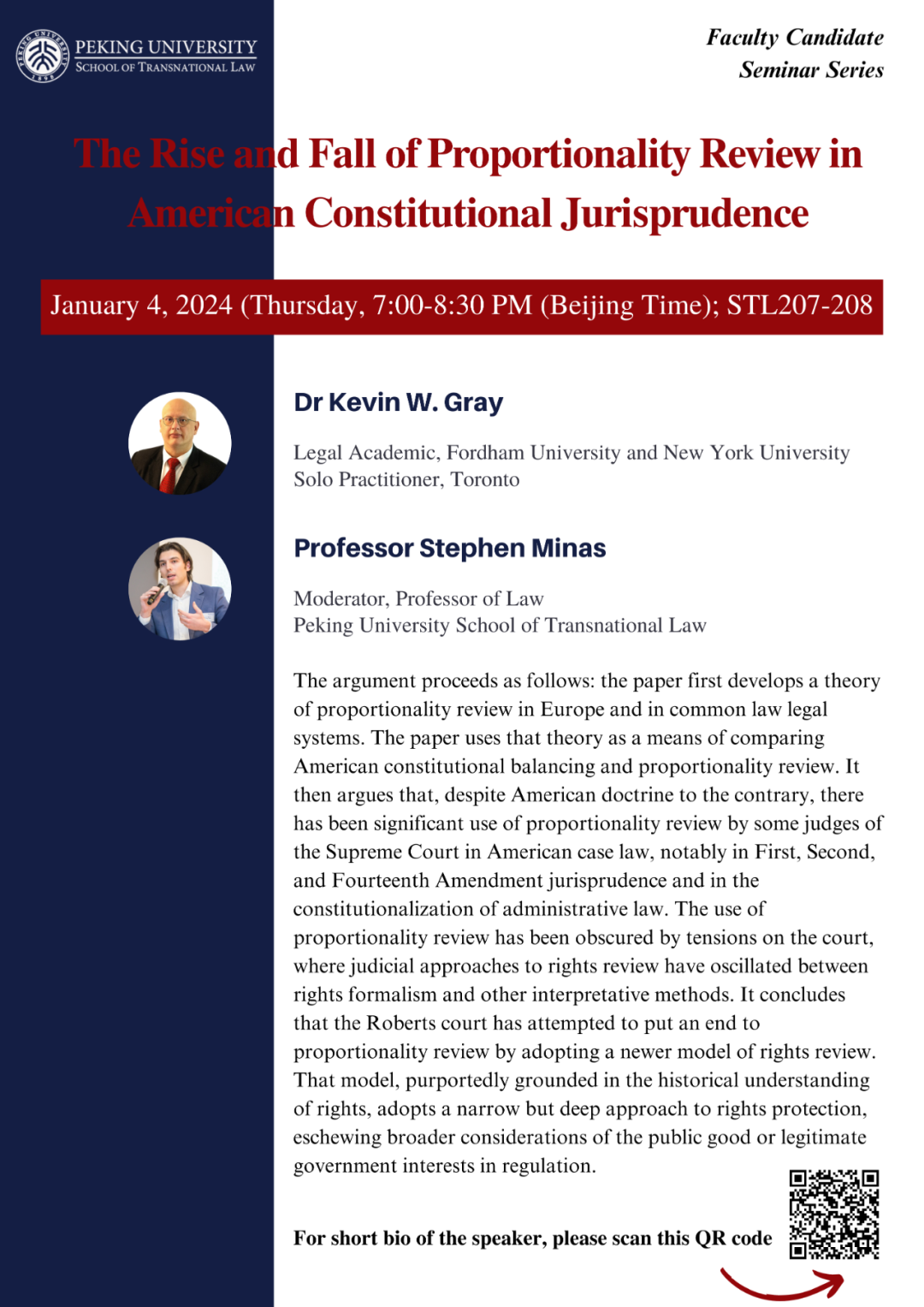
Speaker: Professor Stephen Minas, Moderator, Professor of Law, Peking University School of Transnational Law
Time: 19:00-20:30 p.m., January 4, 2024, GMT+8
Venue: STL 207-208
Abstract:
The argument proceeds as follows: the paper first develops a theory of proportionality review in Europe and in common law legal systems. The paper uses that theory as a means of comparing American constitutional balancing and proportionality review. It then argues that, despite American doctrine to the contrary, there has been significant use of proportionality review by some judges of the Supreme Court in American case law, notably in First, Second, and Fourteenth Amendment jurisprudence and in the constitutionalization of administrative law. The use of proportionality review has been obscured by tensions on the court, where judicial approaches to rights review have oscillated between rights formalism and other interpretative methods. It concludes that the Roberts court has attempted to put an end to proportionality review by adopting a newer model of rights review.That model, purportedly grounded in the historical understanding of rights, adopts a narrow but deep approach to rights protection, eschewing broader considerations of the public good or legitimate government interests in regulation.
Source: School of Transnational Law, PKU
